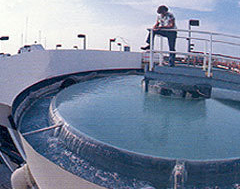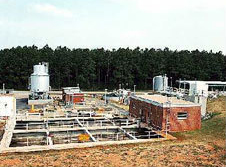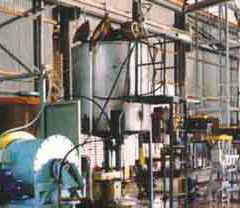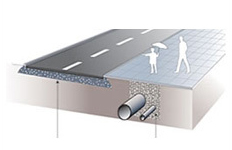 |
APLICATIONS |
|---|---|
We offer various applications, Industrial Chemical Application, Chemical Reaction Application, Gas Treatment Application, Water Treatment Environmental Application, Waste Treatment Environmental Application, Iron And Steel Metallurgical Application, Ore Concentration Metallurgical Application, Civil Engineering Construction Application, Masonary Construction Application, Sugar Refining Industrial Application, Food Industry Industrial Application, Paper Industrial Application, Glass Industrial Application which are used in various industrial purposes. |
|
|
||||
|
||||
 |
Gas Treatment Application |
|---|---|
Lime plays a key role in many air pollution control applications. Lime is used to remove acidic gases, particularly sulfur dioxide (SO2) and hydrogen chloride (HCl), from flue gases. Lime-based technology is also being evaluated for the removal of mercury. |
|
 |
Water Treatment Environmental Application |
|---|---|
Lime is a cost effective reagent, and assists the water engineer by: Re-mineralizing excessively soft water. Water that is too soft will cause corrosion of the water distribution system. The addition of lime provides a safe solution to this problem. It provides protection to the distribution system, and prevents the water collecting excessive levels of dissolved metals, which can adversely affect taste and odor, on its way to the user. Softens (de-carbonates) excessively hard water to prevent scaling of pipes. In this case, lime precipitates bicarbonate salts - the main scale forming minerals - providing water that will not scale the distribution system. Organic matter and trace metals can also be successfully removed in the process of lime treatment. |
|
 |
Waste Treatment Environmental Application |
|---|---|
Lime can be used for effective treatment of sewage biosolids, as well as industrial sludges and petroleum wastes. • Lime treatment is a multi-functional, cost-effective, politically acceptable option with respect to many of the challenges posed by animal wastes, just as it has played an important role in biosolids (sewage) treatment. |
|
 |
Iron And Steel Metallurgical Application |
|---|---|
Lime and dolime are commonly used in converters and electric arc furnaces, where they help to form slag which draws off harmful impurities such as silicon and phosphorus. Lime is also used to improve productivity in the ore agglomeration process. More recently, new products and services have been introduced in various steps of the steelmaking process. These have led to major quality improvements in processes such as hot metal desulphurization and in effluent handling Steelmaking industry also requires large quantities of water for all its processes. Lime and lime-based products are a cost-effective way of adjusting the mineral content. |
|
 |
Ore Concentration Metallurgical Application |
|---|---|
Ore Concentration. Both quicklime and hydrated lime are widely used in the flotation or recovery of many non-ferrous ores--in particular copper ore flotation in which lime acts as a depressant (settling aid) and maintains proper alkalinity in the flotation circuit. In the recovery of mercury from cinnabar, lime is used to remove sulfur. Lime is also used in the flotation of zinc, nickel, and lead bearing ores. It is often used as a conserving agent to assist in the recovery of xanthates, another flotation chemical. |
|
 |
Civil Engineering Construction Application |
|---|---|
Lime has been used in hot mix asphalt (HMA) to reduce moisture sensitivity .Hydrated lime has long been an acknowledged anti-strip additive for asphalt pavements, it also imparts other important benefits: a)It stiffens the binder and HMA to resist rutting. b)It improves toughness and resistance to fracture growth at low temperatures. c)Lime changes oxidation chemistry in the binder to reduce age hardening. d)Lime alters clay fines to improve moisture stability and durability. Lime is an excellent choice for short-term modification of soil properties. Lime can modify almost all fine-grained soils, but the most dramatic improvement occurs in clay soils of moderate to high plasticity. Modification occurs because calcium cations supplied by the hydrated lime replace the cations normally present on the surface of the clay mineral, promoted by the high pH environment of the lime-water system. Thus, the clay surface mineralogy is altered, producing the following benefits: Plasticity reduction Reduction in moisture-holding capacity (drying) Swell reduction Improved stability The ability to construct a solid working platform. |
|
 |
Masonary Construction Application |
|---|---|
Lime has been used as a primary ingredient in masonry mortars for centuries, and this important use continues to the present day in both historic and contemporary applications. Mortars madewith lime and cement exhibit superior workability balanced with appropriate compressive strength, as well as low water permeability and superior bond strength. Lime is a major constituent in exterior and interior stuccos and plasters, enhancing the strength, durability, and workability of these finishes. All of these lime applications are supported by ASTM specifications and standards |
|
 |
Sugar Refining Industrial Application |
|---|---|
Lime as a basic industrial chemical finds usage in many other chemical processes. We offer clients superior grade of hydrated lime and other lime chemicals. It is also known as calcium hydroxide and forms an essential part in the production of sugarcane & sugar beets. Usage: • It is used to purify sugar from other sources such as maple or sorghum Process: • Sugarcane & sugar beets are harvested and processed with water to form raw juice having low PH and containing dissolved impurities • Hydrated lime is added to juice for raising the PH level and to react with present impurities to form insoluble calcium organic compounds which can be removed • Excess lime present is removed by carbonation process or by addition of Phosphoric acid • The whole process is repeated several times depending on purity of final product needed. |
|
 |
Food Industry Industrial Application |
|---|---|
Lime serves a myraid of uses in the food industry. 1) Dairy Industry- When cream is separated from whole milk. lime water is often added to the cream to reduce acidity prior to pateurisation when butter is produced. Skimmed milk is next acidified to separate casein. the caseine is mixed with lime and a small amount of sodium floride to produce calcium caseinate,a form of glue. 2) Glue & Gelatin- Waste maerial from rendering plants are treated with lime in slurry form. This process swells the collagen, thereby facilitating subsequent hydrolysis.After the treated stock is washed to remove lime,albumin, and mucin. the washed stock is dried and the final product is solid as glue or gelatin. 3) Baking Industry- In the preparation of a common typpe of baking powder,mono calcium phosphate is required as an ingredient. 4) Fruit and Vegetables- Bags of hydrated liem are placed on racks in the storage room to absorb co2 that execudes from the ripening fresh produce. |
|
 |
Paper Industrial Application |
|---|---|
Lime is traditionally used to reconstitute caustic soda from the sodium carbonate left over from the pulp-making process. We also supplies high-purity lime for the fabrication of PCC (Precipitated Calcium Carbonate) which is manufactured via a series of controlled chemical reactions. Quicklime is usually mixed with water to form a slurry to which carbon dioxide is added. The resulting reaction produces a very fine precipitated calcium carbonate (CaCO3). This filler is used in paper production to enhance the paper's whiteness, opacity and texture. Lime is also used as a reagent to soften process water in paper factories. |
|
 |
Glass Industrial Application |
|---|---|
We supply the glass industry with extremely pure dolomite of very constant chemical composition and particle size. Dolomite is mainly used in the float glass industry. This source of magnesium acts as a stabilizer to improve the general resistance of glass to natural or chemical attack. we also supplies special reagents for industrial flue-gas treatment. |
|

